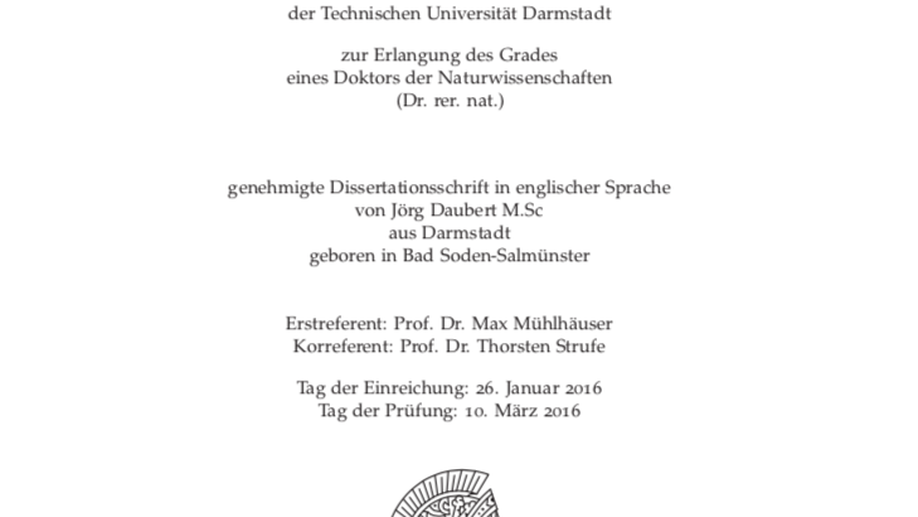Prof. Dr. Jörg Daubert
Computer Science / Information Management Lecturer
Provadis School of International Management and Technology AG
Biography
Hi, I am Jörg Daubert, Professor for Computer Science and Information Management at the Provadis School of International Management and Technology in Frankfurt (Main), Germany.
I studied computer science with a focus on IT management until 2011. In 2016, I obtained my Ph.D. (Dr. rer. nat.) with the thesis on “Anonymous Publish/Subscribe Overlays” at Technische Universität Darmstadt. Since 2014 I worked as acting Area Head of the “Secure Smart Infrastructures” group; since 2016 as a joint PostDoc and Area Head of the “Smart Protection in Infrastructures and Networks” (SPIN) group with 9 researchers within the Telecooperation Lab under Prof. Mühlhäuser in Darmstadt. From 7.2016 till 12.2018, I coordinated the DFG Research Training Group (doctoral college) “Privacy and Trust for Mobile Users” with 11 Ph.D. student positions.
Between 2019 and 2021, I worked as Visiting Associate Professor (dt. Vertretungsprofessor) at the Department of Mathematics and Computer Science at the Philipps-Universität Marburg, Germany.
I also gained experience in industrial research for 4 years as a Junior Researcher (later Researcher) at AGT International, a major industry player in the Internet of Things and data analytics. In addition, I am a freelancing IT consultant since 2011.
Interests
- Anonymous Communication
- Ubiquitous Privacy
- Computational Trust
Education
-
Professor an der Provadis Hochschule, 2021
Provadis School of International Management and Technology AG / Hessisches Ministerium für Wissenschaft und Kunst
-
Ph.D. in Computer Science, Cyber Security, 2016
Technische Universität Darmstadt
-
M.Sc. in Computer Science, IT-Management, 2011
Technische Universität Darmstadt
-
B.Sc. in Computer Science, 2008
Technische Universität Darmstadt





